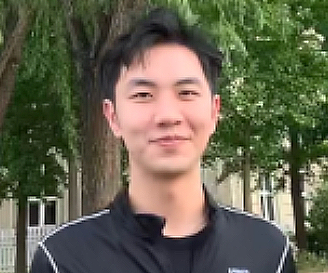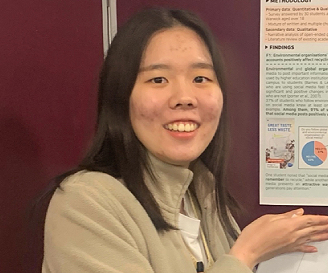Arts and Humanities | International Foundation studies for international Students
This Arts and Humanities course on the Warwick IFP provides you with the knowledge and skills you’ll need to progress on to a wide range of Arts and Humanities degrees at university.
You’ll develop your critical thinking skills and learn how to analyse sources and present academic arguments. You’ll also work on developing your communication skills and team working. These are all skills you’ll need when studying your undergraduate degree and later in your future career.
Key Information
Course unavailable for September 2025
The modules on this programme have been developed to give you a thorough preparation for a range of related undergraduate degrees.
Introduction to Cultural Analysis
This interdisciplinary module aims to support you as you develop familiarity with the requisite skills in the practice of close analysis of culture through the study of a series of visual, material and textual cultural forms, namely art, film, digital and print media, museum and gallery displays. Such practice is a core requirement for the higher-level study of history, liberal arts, drama, performance, art, film and arts management. You will develop tools of analysis to interpret and critique cultural forms drawn from selective disciplines (History of Art, Film Studies, Media Studies, Museum and Gallery Practices). By the end of the module, you should be able to demonstrate knowledge of cultural forms and the contexts in which cultural was created and received, identify and assess the values and assumptions cultural forms represent, interpret and evaluate culture according to criteria appropriate to its form (subject matter, formal elements and purposes), compose and communicate an interpretation of visual, material and textual culture using appropriate evidence and language.
History
History on the Warwick IFP is designed to introduce you to the most important developments that have shaped Europe, the world, and the human experience for the last two hundred years. You will learn about the development of western and global society through periods of huge economic growth and upheaval, and through intellectual, political, and technological transformation. You’ll explore the profound international effects of European empires and political revolutions in the nineteenth and twentieth centuries, and how battles between liberal democracy, communism, and fascism transformed the world. The technical business of history will be introduced from the outset, with specific training in understanding historical debates and in particular in the reading of primary sources. You will learn history in part through documents produced in the periods that you’ll be studying, and will have the opportunity to hear guest speakers from Warwick and from other universities giving talks on the subjects of their own research.
Philosophy
The main aim of our Philosophy module is to provide a broad, introductory, critical overview of the core traditions in Philosophy, from the key thinkers to the key areas of philosophical argument. You will learn about a range of key philosophers and will become familiar with their written works and in doing so, will become confident with the language and logic of philosophical arguments. The module will also provide a range of opportunities for you to develop a variety of skills including critical thinking, essay writing, analysis and evaluation that will enable you to engage successfully in philosophical dialogue. The skills and knowledge gained through this module will help prepare you for a range of different degree level courses.
Inquiry and Research Skills for Social Science, Economics, Law and Arts
This is a core module on this course, and is delivered in two parts to complement your other modules. The first part of this module looks at developing core research and inquiry skills including academic searching, using sources, teamwork, reflection and problem based learning inquiries. The second part of the module allows you to put everything you have learnt into practice through a research based project.
English for Academic Purposes
This module is not about developing your conversational or everyday English skills; instead, it will develop your Academic English skills. You will consider how academic essays should be written, including looking at appropriate referencing and paraphrasing, as well as thinking about how presentations should be delivered in an academic context.
Please note that given the interval between the publication of these modules and enrolment, some of the information may change. You can find out more by reading our terms and conditions.
Connect with our students
Meet Kristen
Find out what it is really like to study at University of Warwick directly from Kristen Thompson, who is a current IFP Arts and Humanities student – get answers on campus life, accommodation, study support, wellbeing and more.


